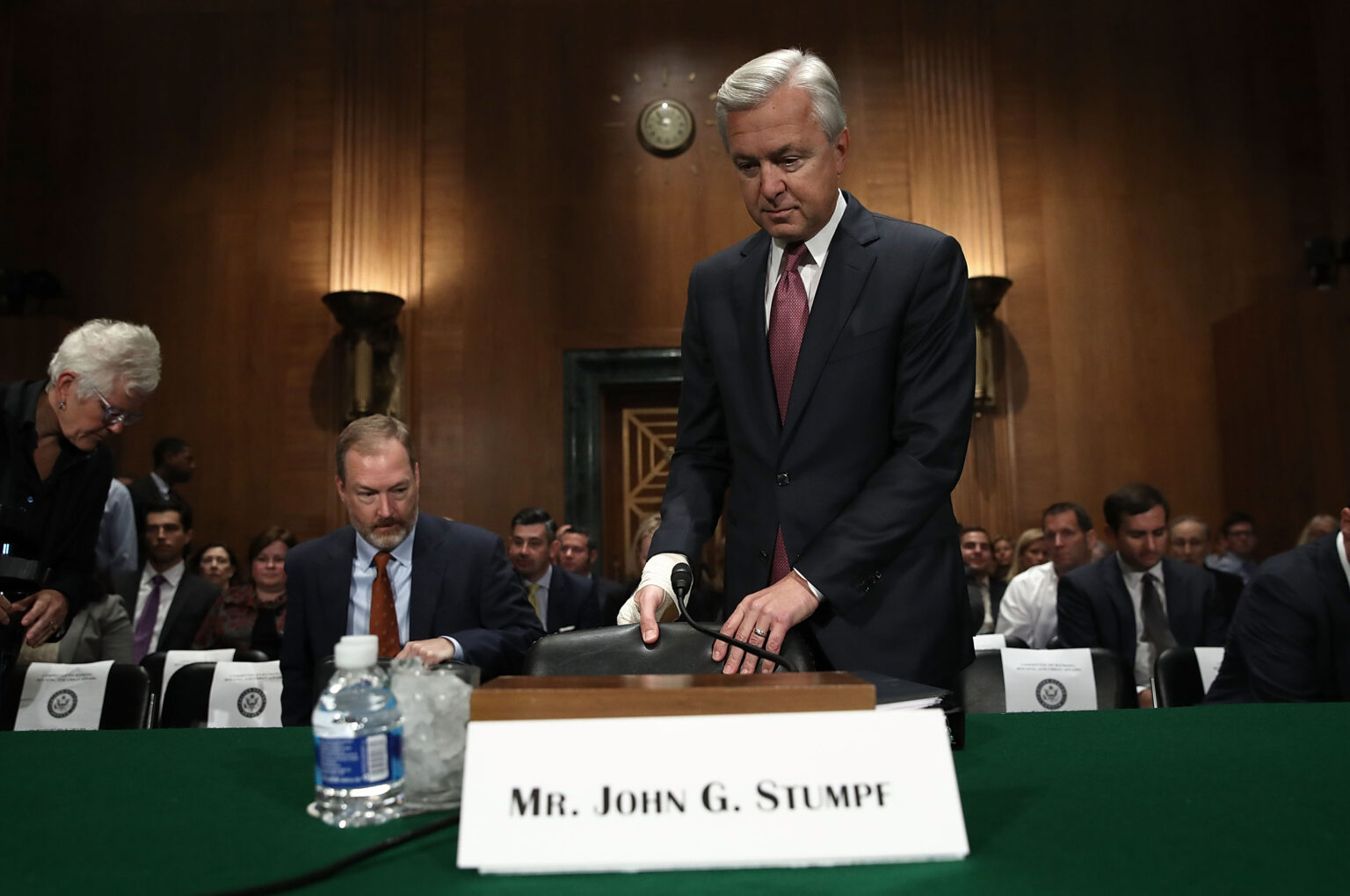Wells Fargo emerged from the Great Recession with a reputation as one of the most resilient major banks in the U.S. market.
Unlike many of its peers, the bank largely sidestepped the severe fallout. In a strategic move, Wells Fargo acquired Wachovia, then the nation’s fourth-largest bank, further consolidating its standing during the post-crisis recovery period.
But in the years that followed, Wells Fargo’s reputation took a serious hit following a scandal involving the bank’s cross-selling practices.
The bank’s aggressive strategy, which often coerced customers or bypassed their consent, backfired, revealing widespread misconduct among employees.
Wells Fargo Cross-Selling Scandal
An investigative report by the Los Angeles Times revealed that Wells Fargo employees, pressured to meet rigorous sales targets, created millions of unauthorized accounts. This led to a cascade of lawsuits, regulatory fines, and a tarnished public image for the bank.
In the subsequent fallout, thirty Wells Fargo employees were fired for opening unauthorized accounts and issuing unauthorized debit and credit cards to Wells Fargo customers.
According to a press release by the Department of Justice, some of the illegal practices included “forging customer signatures to open accounts without authorization” and “creating PINs to activate unauthorized debit cards, moving money from millions of customer accounts to unauthorized accounts.”
Attempts at Accountability
During a 2016 Senate Banking Committee hearing, Sen. Elizabeth Warren (D-MA) questioned Wells Fargo’s then-CEO John Stumpf about whether any of the bank’s executives had been fired in connection with the oversight.
“Have you fired a senior executive—and by that, I don’t mean a regional manager or branch manager. I’m asking about people who led your community banking division or your compliance division,” Warren asks Stumpf.
“No,” Stumpf responds.
“So your definition of ‘accountable’ is to push the blame to lower level of employees…its gutless leadership,” Warren says.
Warren also points out that, while other large banks typically aim for customers to have three accounts, Wells Fargo’s target was set at eight accounts per customer.
However, any checks it had in place failed to prevent its employees from opening as many as two million unauthorized accounts over five years.
According to former Wells Fargo employees, personal bankers could earn bonuses worth up to 20% of their salaries for hitting sales quotas, and tellers could earn bonuses worth 3% of their salaries.
Employees also report that if they failed to meet their daily cross-selling quota, the shortfall would be added to the following day’s target, intensifying the pressure to meet increasingly demanding sales goals.
In 2020, Wells Fargo was ordered to pay $3 billion to settle enforcement actions brought by the Department of Justice, the United States Attorney’s Offices for the Central District of California and the Western District of North Carolina, the Commercial Litigation Branch of the Civil Division, and the Securities and Exchange Commission.
The Fallout Continues
Soon after the scandal broke, Wells Fargo announced the end of its quota program. However, the scandal continued to reverberate for several years.
In February 2024, Wells Fargo faced renewed legal scrutiny as customers affected by the fraudulent cross-selling practices filed a lawsuit, claiming the bank hindered their attempts to receive compensation.
According to the suit, the bank allegedly created excessive barriers for victims navigating the claims process, frustrating those seeking redress for the financial harm caused by the Wells Fargo cross-selling scandal.
The cross-selling scandal is only one of several questionable practices Wells Fargo has come under fire for in recent years. In 2021, the Consumer Financial Protection Bureau (CFPB) roped the bank into an investigation into discriminatory lending practices such as denying African-Americans and women access to discounted interest rates on loans available to other loan applicants.
Related: Fed Charges Rocket Mortgage, Maverick Appraisal Group With Housing Discrimination
The bank is also facing allegations of holding sham interviews with diverse candidate it has no intention to hire in order to present as an attractive options for ESG investors.
A Systemic Problem
Though it caught the spotlight for the practice, Wells Fargo isn’t the only financial institution engaging in deceptive practices. Across the industry, similar allegations have surfaced, with some banks allegedly engaging in questionable tactics to drive account openings, credit card sign-ups, and signing up for services under misleading pretenses.
Related: “Overdraft Protection” Isn’t What It Sounds Like
For instance, one member of Reddit reported that a credit union employee may have falsely claimed that opening another card with the credit union could increase their credit score.
A few savvy commenters suggested reporting that to the CFPB. They note is could be a violation of the same Unfair, Deceptive, or Abusive Acts or Practices (UDAAP) regulations that Wells Fargo had violated.
As the Wells Fargo cross-selling scandal illustrates, the drive for higher sales within financial institutions can blur ethical lines, putting consumers at risk. While the bank has paid billions in fines and revamped its practices, the case remains a cautionary tale for consumers and the industry.
Until incentive structures align with ethical standards, the risk of similar misconduct looms, reminding both consumers and regulators to stay vigilant in safeguarding financial transparency and integrity.
Related: JPMorgan Chase CEO Jamie Dimon Blasts Proposed Regulations
Disclaimer: This article is for informational purposes only and does not constitute financial advice. The views and opinions expressed are those of the author and do not represent recommendations for any specific financial actions or investments.


